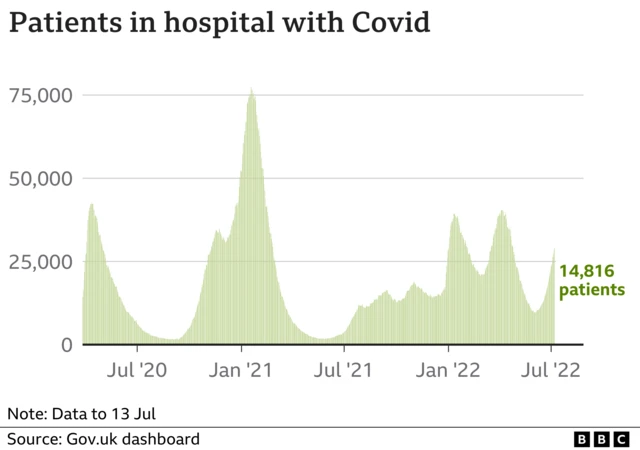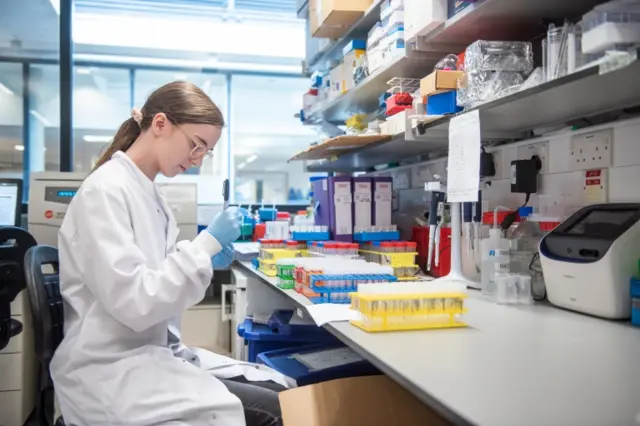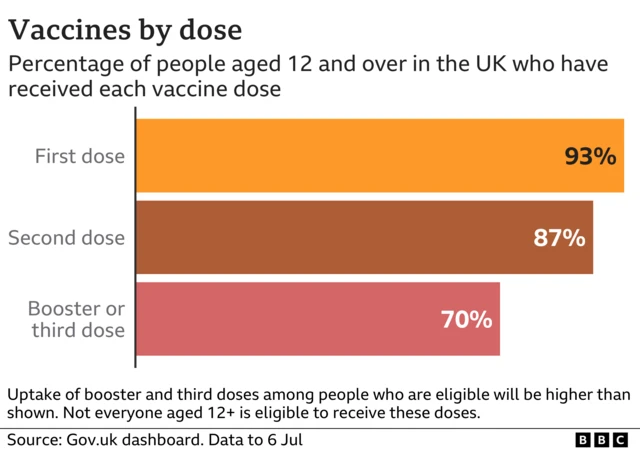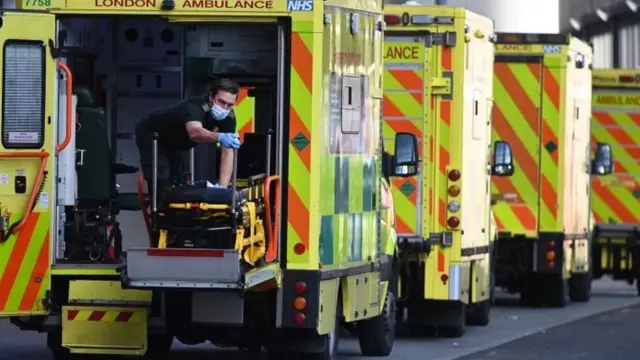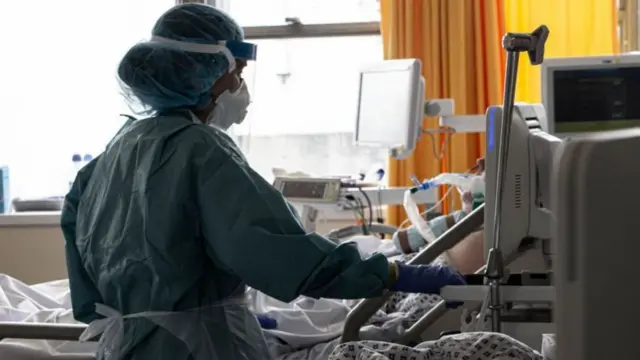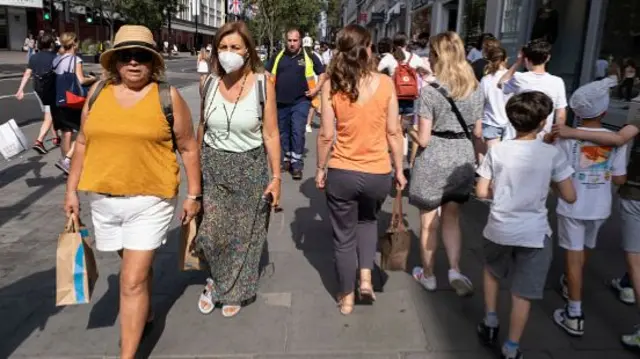What is the new subvariant ‘Centaurus’?published at 11:40 BST 15 July 2022
 Michelle Roberts
Michelle Roberts
Health editor, BBC News online
Experts are keeping a watch on a new mutant version of Covid called BA.2.75 that has emerged.
It's not clear yet whether this subvariant of Omicron is one to worry about or not.
It was first spotted in India in May. Since then, at least 10 other countries, including the UK, Germany and the US, have seen some cases.
Nicknamed by some as Centaurus, it has some structural and genetic changes to the spike protein - the bit of the virus that our vaccines are designed around.
It's still too early to know if this means it will be better at dodging our immune defences or cause more severe disease. We have to wait and see, says the World Health Organization's chief scientist Soumya Swaminathan.
The European Centre for Disease Prevention and Control has listed it as a "variant under monitoring" rather than a "variant of concern".
